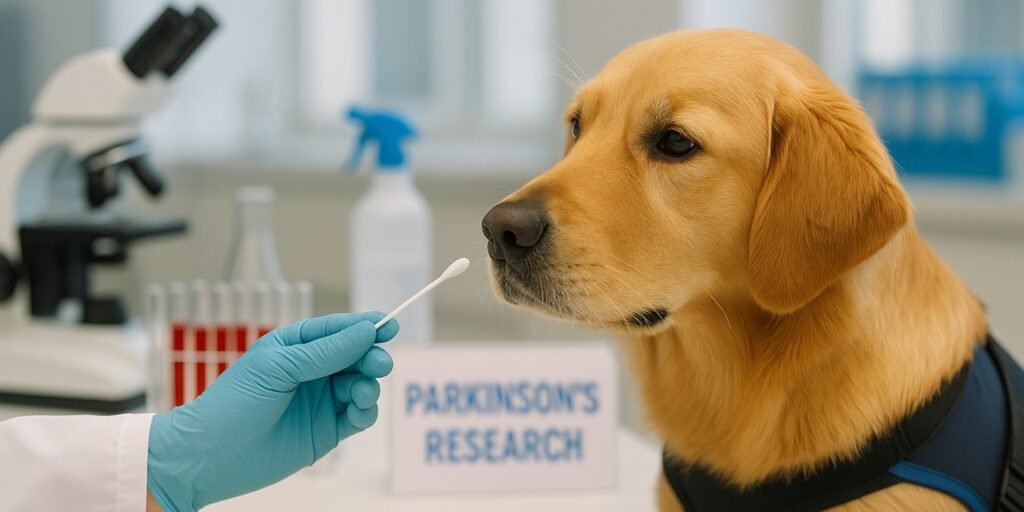Sniffing Out Parkinson’s: Dogs May Hold the Key to Early Diagnosis

Last Updated on July 24, 2025 by Rose Ann
A recent UK study shows that our four‑legged friends can sniff out Parkinson’s disease long before the first tremor appears.
In controlled double‑blind trials, a golden retriever named Bumper and a black lab called Peanut correctly identified skin‑swab samples from people with Parkinson’s with sensitivities of 70–80 percent and, impressively, ruled out healthy samples with up to 98 percent specificity.
Dogs’ success hinges on an “olfactory signature” carried in the oily sebum we all secrete — compounds that change when the disease is brewing years before symptoms set in.
Why does this matter? Today there is no quick, affordable early test for Parkinson’s, a condition that can quietly damage the nervous system for up to two decades before diagnosis.
Early detection could buy patients precious time to adopt protective therapies, join clinical trials, and plan their futures while options are widest. By proving that dogs can reliably smell these invisible changes, researchers hope to pin down the exact chemicals involved and translate canine noses into inexpensive swab‑tests for clinics — or even electronic “e‑noses” that could live in smartphones down the road.

As Claire Guest, co‑founder of Medical Detection Dogs, puts it:
“The dogs have once again shown there’s an unmistakable scent to Parkinson’s. Harnessing that could give millions a head‑start on treatment.”
Beyond the lab, the findings underscore the growing role of biology’s best sniffer in human health. Dogs already help detect cancers, infections, even stress. Add Parkinson’s to the list, and we’re one step closer to a future where routine check‑ups might include a friendly nose‑boop — no needles required.
Curious to learn how super‑smeller Joy Milne inspired this research, why only two of ten trainee pups “graduated,” and what’s next for electronic noses? Read the full ScienceAlert story for the scent‑filled details.
Give the article a read and discover how dogs could help rewrite the Parkinson’s playbook — your future self (and your furry friend) may thank you.





